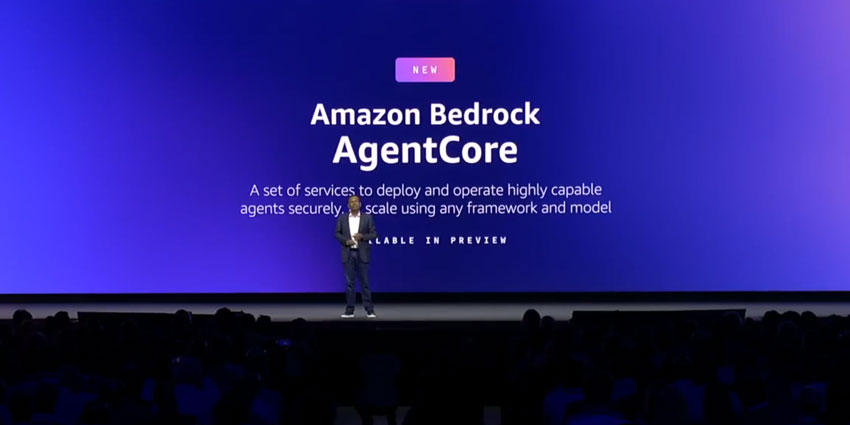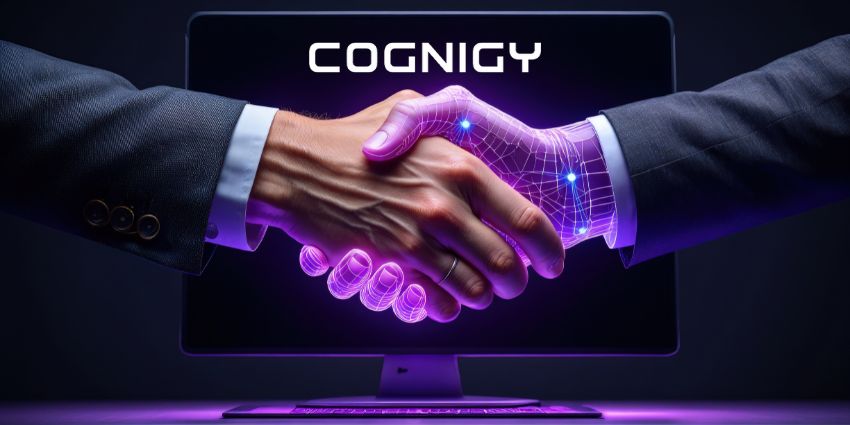From more generative AI innovation to new contact center agent support teams, here are some extracts from our most popular news stories over the last seven days.
Google Adds a Generative AI App Builder to Its CCaaS Platform
Google has announced plans to embed its new Generative AI App Builder into the Google Contact Center AI Platform.
The App Builder combines large language models (LLMs), conversational AI, and search technologies to create multimodal chatbots capable of delivering personalized experiences.
First, the contact center must feed the builder with information from across the company website, product manuals, FAQ documents, and agent support content.
From there, Yariv Adan, Director of Cloud Conversational AI at Google, suggests that businesses can “build a bot within minutes.”
Sharing more in a blog post, Adan stated:
Just point the product at relevant sources— like the URL of a website, a manual, or a repository of websites—and with only a few clicks, a customized chatbot will [be] ready for deployment across a variety of channels.
While Adan did not mention voice, he suggested that the application will work on the company website, in customer apps, and across popular messaging channels.
By adding this to the existing conversational AI capabilities Google offers, the tech giant hopes to support brands in automating more contacts.
While many of these will involve gathering helpful information, Adan notes that the App Builder will also help customers process returns, make payments, and “execute other transactions.”
AWS Launches Step-by-Step Guides for Amazon Connect
AWS has made step-by-step guides for the Amazon Connect agent workspace generally available.
These guides lead agents through the ideal path to resolve particular customer queries.
To get to grips with how they do so, consider the four steps that most customer conversations follow: customer identification, intent recognition, issue resolution, and post-call processing.
AWS has optimized step-by-step guides around these, with plug-ins to support each step, including voice ID, alongside first- and third-party system integrations.
These integrations help serve up information for agents as they navigate the guide – with the help of toggle buttons – and pre-populate the forms.
Sharing more in a blog post, Veliswa Boya, Senior Developer Advocate at AWS, stated:
Imagine the agent accepting a call, a chat, or a task and being given the necessary information about the customer and the case, plus real-time recommendations, all in one place without the need to switch between applications.
To start, the tool surfaces a list of likely intents using intelligence gathered from the upfront IVR or bot. This allows the agent to focus on listening to what the customer says and choose the appropriate option.
Then, the agent follows a sequence of UI pages, allowing them to exert control over the call and make their way through the workflow, one step at a time.
The contact center can also work in scripted messages, which the agent can choose to use – instead of sourcing a knowledge article or scooping up buried data.
Cisco Introduces Its “Self-Learning Contact Center” Vision
Implementing AI is still a tricky task. After all, it takes time to customize an AI model for specific use cases, funnel the data to it, and use that to train the solution.
As such, many vendors are dedicating more resources to increasing the usability of AI. Cisco is no exception and is now making it a prerogative.
Its new “self-learning contact center” vision for its Webex Contact Center underlines this.
With this vision, Cisco will embed more AI into its CCaaS platform, which listens to customer conversations, learns, and empowers the contact center with new capabilities.
Upon the announcement, Cisco introduced two new solutions that bring this vision to life.
First is a “Topic Analysis” tool, which gathers customer transcripts, unearths trends, and presents them to managers using visuals.
The next is an “Agent Answers” solution. This monitors customer conversations and surfaces relevant information for contact center agents to support a successful call resolution.
Agent Answers will also draw insights from a customer’s self-service and conversational AI experiences. It then passes these on to agents when the customer escalates to the contact center – empowering them with more customer context.
While these solutions may underwhelm initially, they are continuously learning. Over time, they will become more intelligent.
It is likely that Cisco will release further many more self-learning AI solutions for CCaaS, having recently required MindMeld and BabbleLabs – increasing its expertise in the arena.
RingCentral Releases a Conversational Analytics and Automation Platform for Sales Teams
RingCentral has released RingSense for Sales, an AI platform that supports sales teams with analytics and automation tools.
The platform leverages generative AI alongside machine learning models, which RingCentral has trained on millions of hours worth of interactions.
In doing so, it churns out insights for revenue-generation teams. These insights may include the best time to follow up with a customer, suggestions to shorten prep time, and keyword trends from successful conversations.
Yet, for RingSense to deliver actionable insights, it must drink from a drink from a deep well of customer-specific data.
RingCentral enables this by allowing the solution to funnel data from third-party CCaaS, UCaaS, and CRM platforms alongside additional customer experience and enterprise communications tools.
Scanning all this data, RingSense aims to spot issues before they become particularly problematic. These may include missed deadlines, coaching gaps, and mixed messaging.
In addition, the platform offers the tools to automate monotonous tasks, such as monitoring follow-ups and auto-creating call notes.
Celebrating the launch, Vlad Shmunis, Founder, Chairman, and CEO of RingCentral, stated:
With RingSense, we have the opportunity to inject cutting-edge AI across the entire RingCentral portfolio and make communications a powerful resource for businesses to unlock new potential and quickly extract meaningful information and insights.
RingCentral also wishes to support users in sharing data across the business, allowing other departments to draw value from them.
For instance, marketing teams can harness insights, isolate drivers for sales, and maximize their presence in deals.
The following video showcases more excellent examples of these insights.






